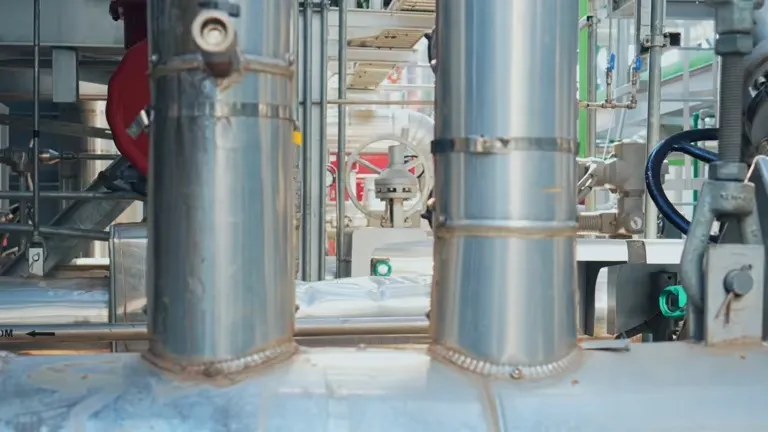
Boiler Maintenance in East Ptersburg, PA
Keeping your boiler tuned and reliable is essential for comfortable winters and safe homes in East Ptersburg, PA. Routine boiler maintenance reduces the risk of mid-season breakdowns, improves fuel efficiency, and protects warranty coverage. For homeowners and property managers in this region—where cold, wet winters and an older housing stock make dependable hydronic heating critical—a clear maintenance plan is the difference between steady warmth and costly emergency repairs.
Common boiler issues in East Ptersburg homes
- Kettling and excessive soot build-up in cast-iron or sectional boilers due to scale and poor combustion.
- Low system pressure or frequent pressure loss from small leaks, failing expansion tanks, or air trapped in radiators and baseboards.
- Pilot or ignition failures on older gas and oil-fired boilers after long idle periods.
- Corrosion of valves, seals, and piping in older installations, often accelerated by hard water common in Lancaster County.
- Combustion inefficiency leading to higher fuel bills and elevated carbon monoxide risk when flue paths or burners are not cleaned and adjusted.
Understanding these local patterns helps prioritize inspections and treatments during tune-ups to prevent predictable failures.
What a seasonal or annual boiler maintenance visit includes
A professional boiler tune-up is a systematic inspection, cleaning, and performance check. Typical tasks performed during an annual or seasonal visit include:
- Visual system inspection: Check boiler cabinet, burners, flue, venting, piping, and visible controls for corrosion, leaks, and wear.
- Cleaning: Remove soot and scale from combustion chamber, heat exchanger surfaces, and burner assemblies to restore heat transfer and efficiency.
- Combustion analysis: Measure oxygen, CO2, and carbon monoxide levels and adjust the burner for safe, efficient combustion.
- Controls and safety device testing: Verify thermostats, high-limit and low-water cutoffs, pressure-relief valves, and safety interlocks operate correctly.
- Inspection of seals and valves: Check for deterioration at flanges, pump seals, zone valves, and isolation valves; tighten or recommend replacement as needed.
- Pressure and temperature checks: Confirm operating pressure and temperature are within manufacturer specifications; inspect expansion tanks and air elimination components.
- System flushing and water treatment checks: Evaluate water quality, check for scale and corrosion, and recommend chemical treatment or a purge/flush where necessary.
- Draft and venting inspection: Ensure proper flue draft and clear vent pathways to minimize CO risk and meet code expectations.
- Documentation and recommendations: Provide a written summary of findings, efficiency readings, and prioritized repair recommendations.
How technicians diagnose and verify performance
Technicians combine visual inspection with diagnostic tools:
- Combustion analyzers confirm burner tuning and detect unsafe CO levels.
- Pressure gauges and thermometers verify system operation under load.
- Infrared or heat-sensing tools identify uneven heat transfer or blocked passages.
- Leak detection and moisture checks target hidden piping or boiler jacket corrosion.
These diagnostics not only identify current faults but also reveal developing issues that are inexpensive to address early.
Benefits of regular boiler maintenance
- Improved efficiency: Clean burners and tuned combustion reduce fuel use and lower monthly heating costs.
- Longer equipment life: Routine attention prevents corrosive damage and mechanical wear, extending the serviceable life of boilers and pumps.
- Fewer emergency repairs: Predictive maintenance identifies weak components before they fail during freezing weather.
- Safety and indoor air quality: Proper venting and combustion checks minimize the risk of carbon monoxide intrusion.
- Warranty and code compliance: Many manufacturers and insurance policies require documented maintenance to keep warranties valid and to satisfy safety requirements.
For East Ptersburg homes, where fuel costs and cold snaps make reliability critical, these benefits translate directly into greater comfort and predictable household budgets.
Recommended maintenance schedule and plan options
- Annual comprehensive tune-up: At minimum, most boilers should receive a full inspection and combustion tune-up once per year—ideally before the heating season. For older systems, oil-fired units, or properties with hard water, a twice-yearly check is often recommended.
- Seasonal checks: A pre-winter seasonal visit ensures the system ramps up correctly for heavy use; a spring check can catch issues following the heating season and prepare the system for off-season care.
- Maintenance plans: Typical plans offer tiered service levels to match needs:
- A higher-tier plan provides two visits per year, priority scheduling, filter replacement, and small parts inspection and lubrication.
- A basic plan provides one annual visit with full inspection and cleaning plus documentation for warranty purposes.Perks commonly included in plans are priority service during peak season, documented maintenance records for warranty and resale, and eligibility for discounts on repairs and system components. Specific plan inclusions are tailored to system type and age.
How maintenance ties into warranties and safety compliance
Manufacturers frequently require documented, periodic maintenance to honor warranty claims. Keeping a maintenance log with technician notes and combustion reports helps preserve coverage and provides proof for insurance or resale transactions. In addition, documented safety checks—such as CO readings and vent inspections—support compliance with local safety expectations and reduce liability.
Practical tips for East Ptersburg homeowners
- Keep boiler room areas clear and accessible for inspection and service.
- Monitor pressure and water level indicators periodically; report unexplained drops or fluctuations.
- Address small leaks or odd noises early—these are commonly inexpensive repairs that prevent larger failures.
- If your home has older radiators or piping, ask about power flushing or water treatment to slow corrosion and scale.
- Maintain a maintenance record and retain combustion analysis reports to support warranties and home inspections.
Regular, professional boiler maintenance is an investment that pays off through safer operation, lower fuel bills, and fewer unexpected repairs—especially important in East Ptersburg where winter reliability matters most. A planned maintenance approach tailored to your boiler type and home conditions ensures predictable comfort and long-term value.


Enjoy flexible financing options that make upgrading or repairing your HVAC system easy and budget-friendly.










